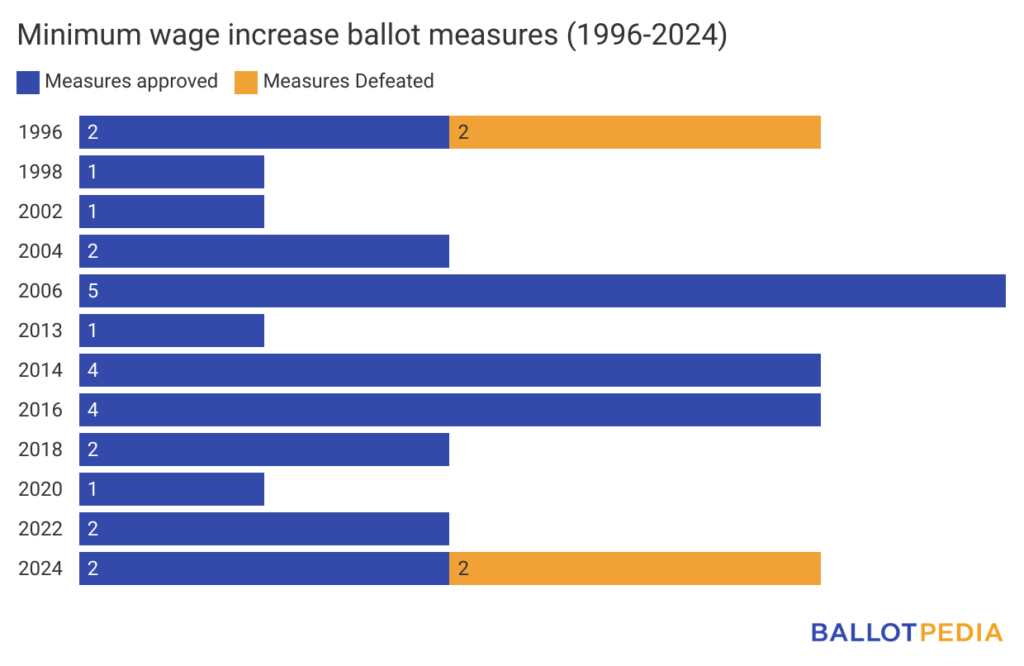Ballot measures to increase the minimum wage were consistently approved from 1998 to 2023, with 24 measures passing during this period. In 2024, voters in California and Massachusetts broke the trend by rejecting proposals to increase minimum wages, the first such defeats since 1996.

In California, voters rejected Proposition 32, which would have increased the minimum wage to $18.00 per hour. This was the highest proposed minimum wage ever appearing on a statewide ballot. As of Nov. 21, the vote was 49.2% 'Yes' to 50.8% 'No.'
As of 2024, California's minimum wage was $16 per hour, the second-highest state rate after Washington's $16.28 per hour. Washington, D.C., had a $17 minimum wage.
Voters in Massachusetts also rejected a minimum wage increase, which would have been limited to tipped workers. Question 5 would have increased the wage of tipped employees to meet the state minimum wage. As of 2024, the minimum wage for tipped employees in Massachusetts was $6.75 in addition to tips, and the minimum wage for non-tipped employees was $15.00. The vote was 35.6% 'Yes' to 64.4% 'No'.
The last time voters rejected minimum wage increase ballot measures was in 1996 in Missouri and Montana, with 71% and 56% voting against the measures, respectively. From 1996 to 2024, the average vote on a minimum wage measure was 60.1% 'Yes' to 39.9% 'No.' The measure that received the highest percentage of votes (75.9%) was Missouri Proposition B in 2006, which increased the minimum wage to $6.50 per hour.
While voters in California and Massachusetts—both won by Kamala Harris in the presidential election—rejected minimum wage increases, voters in Alaska and Missouri, both won by Donald Trump, approved $15 minimum wage initiatives. Ballot measures in Alaska and Missouri each received about 58% of the vote.
Voters in Missouri approved Proposition A, which will increase the minimum wage to $15.00 in 2026 and enact paid sick leave requirements.
In Alaska, voters approved Ballot Measure 1, which will increase the minimum wage to $15.00 in 2027 and enact paid sick leave requirements. The initiative also prohibits employers from taking adverse action against employees who choose not to attend employer-sponsored meetings on religious or political matters.
Voters also rejected Arizona Proposition 138, a measure from the legislature, which would have allowed tipped workers to be paid 25% less per hour than the minimum wage if any tips received by the employee were not less than the minimum wage plus $2 for all hours worked. The measure would have had the effect of decreasing the minimum wage for tipped workers. The measure was defeated with 74% of voters opposed.
Ballotpedia provides information on minimum wage ballot measures dating back to 1996, which can be accessed here.



